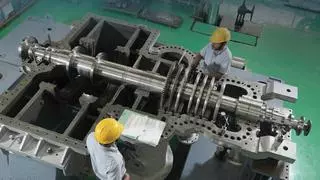Falling interest rates have been pinching investors for about two years now. With the RBI resorting to monetary easing, policy rates have been cut by 115 basis points in 2020 so far. Following this, banks have also further slashed their interest rates on fixed deposits (FDs).
In this scenario, many investors have been scouting for relatively higher rates on fixed income investments. But higher returns invariably mean higher risk. Consider the case of the FD scheme of Hawkins Cookers. The company is offering 8.5 per cent per annum for deposits with a tenure of 12 months. For deposits of 24 and 36 months, the rates offered are 8.75 per cent and 9 per cent per annum, respectively. These rates are higher than many others in the market today.
Related Stories
Big Story | India Inc’s battle against Covid-19
The Covid-19 pandemic impacted the operations and demand in most sectors in the March quarter. Was there any revival in April and May? We sifted through exchange announcements, results and management guidance to get you some answersBut the flipside is that FDs of Hawkins are rated ‘MAA’ / Stable rating by ICRA. This rating implies high credit quality and low credit risk. But it is a couple of notches below the highest rating of ‘MAAA’ — indicating that the Hawkins deposit has higher risk than the safest deposits in the market today.
Investors who can take such higher risk for higher returns can consider the FD scheme of Hawkins that opens on Friday, September 18, 2020. Interested investors should pre-register for the FDs on the company’s website (www.hawkinscookers.com/fd2020.aspx).
Related Stories
Mid/small-cap stocks rally on SEBI multi-cap norms
Investors see fund houses diversifying investments; brokerages call for cautionThis FD may however, not be the best choice for conservative investors, who prefer full safety of capital over returns. One, the credit rating is not the highest. Two, there is a risk that the ongoing Covid-19-related troubles in the economy could affect smaller companies such as Hawkins more.
High returns
The interest rates offered by Hawkins are relatively higher across tenures. For a 12-month deposit, while public sector banks offer 4.5-5.1 per cent, private banks offer up to 6.5 per cent, and small finance banks (SFBs) offer up to 6.6 per cent — Hawkins offers 8.5 per cent. For tenures of 24/36 months, banks currently offer 7.1-7.5 per cent, while Hawkins offers 8.75-9 per cent.
But the relatively lower rates offered by banks on their deposits are commensurate with their relatively higher safety. FDs with banks (including those with SFBs) are covered under the deposit insurance offered by DICGC, for up to ₹5 lakh per bank. This cover is not available for corporate FDs such as those of Hawkins.
The rates offered by Hawkins are 160 to 280 basis points higher than those offered by NBFCs, such as Bajaj Finance, Mahindra and Mahindra Financial Services and Sundaram Finance. But the latter’s deposits have a higher credit rating (AAA), indicating better safety.
Even among its peers with about similar rating, the rates offered by Hawkins score better. For instance, Shriram Transport Finance’s deposits, rated MAA+ by ICRA, offer 7.5/7.7/8.15 per cent per annum and tenures of 12/24/36 months, respectively.
JK Paper has a similar rating (‘FAA’ / Stable by CRISIL), but the interest rates offered by it are 50-65 basis points lower than those offered by Hawkins, across tenures.
Shorter tenures better
With interest rates in the economy at multi-year lows now, locking into deposits with longer tenures could mean missing out on higher returns when the rate cycle begins to move up. A one- to two-year timeframe hence, seems better, as this could perhaps give the opportunity to reinvest at higher rates later on. Also, given the relatively higher risk, it may be better even for investors with a high-risk appetite to put only a portion of the surplus in the Hawkins’ deposit.
The company accepts a minimum of ₹25,000 as deposit and in multiples of ₹1,000 thereafter. Investors can choose from the cumulative and non-cumulative options. Under the former, interest will be compounded at monthly rests and paid on maturity, along with the principal. A deposit of ₹25,000 will fetch ₹27,210/ 29,762/ 32,716, at maturity, for tenures of 12/ 24/ 36 months, respectively.
For non-cumulative deposits, interest will be paid out on half-yearly basis.
About the company
Hawkins is one of the leading manufacturers of pressure cookers in India with a wide distribution network. The company has also diversified its product portfolio into other cookware products that constitute about 20 per cent of the turnover (in FY20). Currently, overseas sales account for about 6 per cent of the company’s revenue.
However, Hawkins is a small company, both in terms of turnover and market capitalisation ( ₹2,750 crore).
While the company’s revenue grew by 10.3 per cent compounded annual growth rate (CAGR) over FY16 to FY19, the growth was muted in FY20 — 3.2 per cent (y-o-y) to ₹674 crore. This was largely due to the lockdown imposed in the March 2020 quarter. Net profit grew by 9.9 per cent CAGR over FY16 to FY19. In FY20, profit grew by 34 per cent (y-o-y) to ₹72.5 crore, due to soft raw material (aluminum) prices, cost control and the company opting for the lower tax regime.
Hawkins plans to meet its working capital requirements from this FD scheme, apart from using the money as a buffer for any unforeseen exigencies. The company has unencumbered cash and liquid investments of ₹48.5 crore as of March 31, 2020, up 38 per cent from the year-ago period. Besides, as per ICRA’s rating rationale, the company also has largely unutilised working capital limits, which provide a liquidity cushion.
The company had long-pending receivables to the tune of ₹15 crore (constituting 30 per cent of overall receivables), outstanding as on March 31, 2020, from over 740 dealers across the country. However, in the recent AGM, the management clarified that the company has collected 99.5 per cent of the pending receivables from dealers. The company is net-debt free, and its debt to equity ratio is healthy at 0.2 times as of March 2020.
However, the pandemic has disrupted the demand for the company’s products. In the recent June quarter, the company’s revenues were down 29 per cent y-o-y to ₹100 crore. Due to the fixed costs, profits were down 53 per cent y-o-y to ₹6.44 crore in June quarter. While the management has said that production has reached 75 per cent of pre-Covid-19 levels in July, the recovery in sale revenues is not fully clear yet.
Register to invest
Interested investors should pre-register themselves on the company’s website
Points to note
- May be suitable only for investors with high risk appetite
- Minimum investment of ₹25,000
- Cumulative and non-cumulative options








Comments
Comments have to be in English, and in full sentences. They cannot be abusive or personal. Please abide by our community guidelines for posting your comments.
We have migrated to a new commenting platform. If you are already a registered user of TheHindu Businessline and logged in, you may continue to engage with our articles. If you do not have an account please register and login to post comments. Users can access their older comments by logging into their accounts on Vuukle.